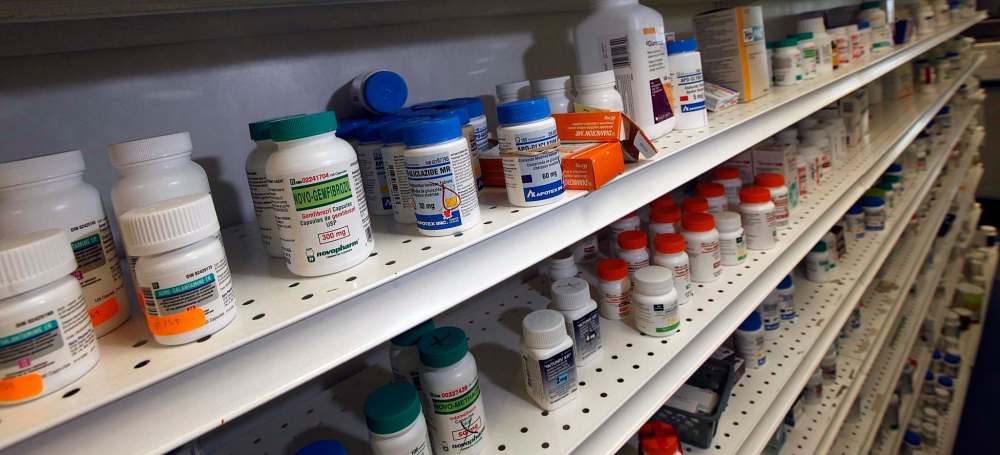Pilot project tracking dispensing mistakes at pharmacies
Advertisement
Read this article for free:
or
Already have an account? Log in here »
To continue reading, please subscribe:
Monthly Digital Subscription
$19 $0 for the first 4 weeks*
- Enjoy unlimited reading on winnipegfreepress.com
- Read the E-Edition, our digital replica newspaper
- Access News Break, our award-winning app
- Play interactive puzzles
*No charge for 4 weeks then billed as $19 every four weeks (new subscribers and qualified returning subscribers only). Cancel anytime.
Read unlimited articles for free today:
or
Already have an account? Log in here »
Hey there, time traveller!
This article was published 13/08/2017 (2440 days ago), so information in it may no longer be current.
A number of pharmacies across Manitoba will begin anonymously tracking errors in the dispensing of medication as part of a new pilot project.
Twenty pharmacies will participate in the year-long initiative, which the College of Pharmacists of Manitoba says is the first step toward creating a proper provincial system for tracking the mistakes.
“Our goal (is) that we can all learn together,” Jennifer Ludwig, president of the College, said at a press conference Monday.

Most provinces do not have such a system. Currently in Manitoba, such mistakes are handled at an individual pharmacy level. When a patient is given the wrong medication, a number of steps are taken in relatively short order, Ludwig explained. The patient is informed, as is the person who prescribed the medication and the person who dispensed it. The patient is given the correct medication, and the pharmacy conducts an investigation to determine the root cause and whether any changes are required.
But, at present, lessons learned and resultant practice changes don’t extend beyond the individual pharmacy. There’s no formalized mechanism for pharmacies to learn from mistakes made at other pharmacies. The pilot program, Safety IQ, which will be administered in conjunction with the Institute for Safe Medication Practices Canada (ISMP Canada), will help change that.
“With elements of standardization and shared learning, Safety IQ improves upon the current process,” Ludwig said.
Staff at the pharmacies that volunteered for the pilot program were trained on the system Sunday.
Certina Ho, project lead with ISMP Canada, was on hand to explain how it’s going to work.
First, staff at each pharmacy will have to fill out a medication-safety self assessment, which functions similar to a survey. Second, there’s an anonymous medication incident reporting computer program staff can use to report incidents as they occur in their place of work. Finally, there’s a documentation process whereby the pharmacy creates and monitors their own action plan in response to any incidents.
The pharmacies are expected to meet quarterly to review any incidents internally, although ISMP Canada and the College will be in frequent communication throughout the duration of the program, Ho said.
The program is anonymous because the college is trying to encourage change but at the same time move away from “a blame culture” that makes pharmacists hesitant to own up to any errors, whether their colleagues or their own, Ludwig said.
“It is our hope and desire that this pilot leads to the implementation of a province-wide reporting system that let’s pharmacists and pharmacy staff learn from errors and near misses so we are successful in reducing their numbers,” she said.
Melissa Sheldrick, a patient-safety advocate, says such an error killed her eight-year-old son Andrew in Ontario a little more than a year ago.
She says her friendly, athletic little boy died after the medication he was receiving for a sleeping disorder was accidentally swapped with another that led to his death. It took months for answers, but her push for accountability yielded results in Ontario. In June, the Ontario College of Pharmacists voted to make anonymous reporting of medical incidents to a third party mandatory.
In Winnipeg on Monday, Sheldrick says she’s heartened to see Manitoba take a step in that direction.
“My goal is to keep going to get this whole country on board,” she says.
jane.gerster@freepress.mb.ca
Twitter: @Jane_Gerster


